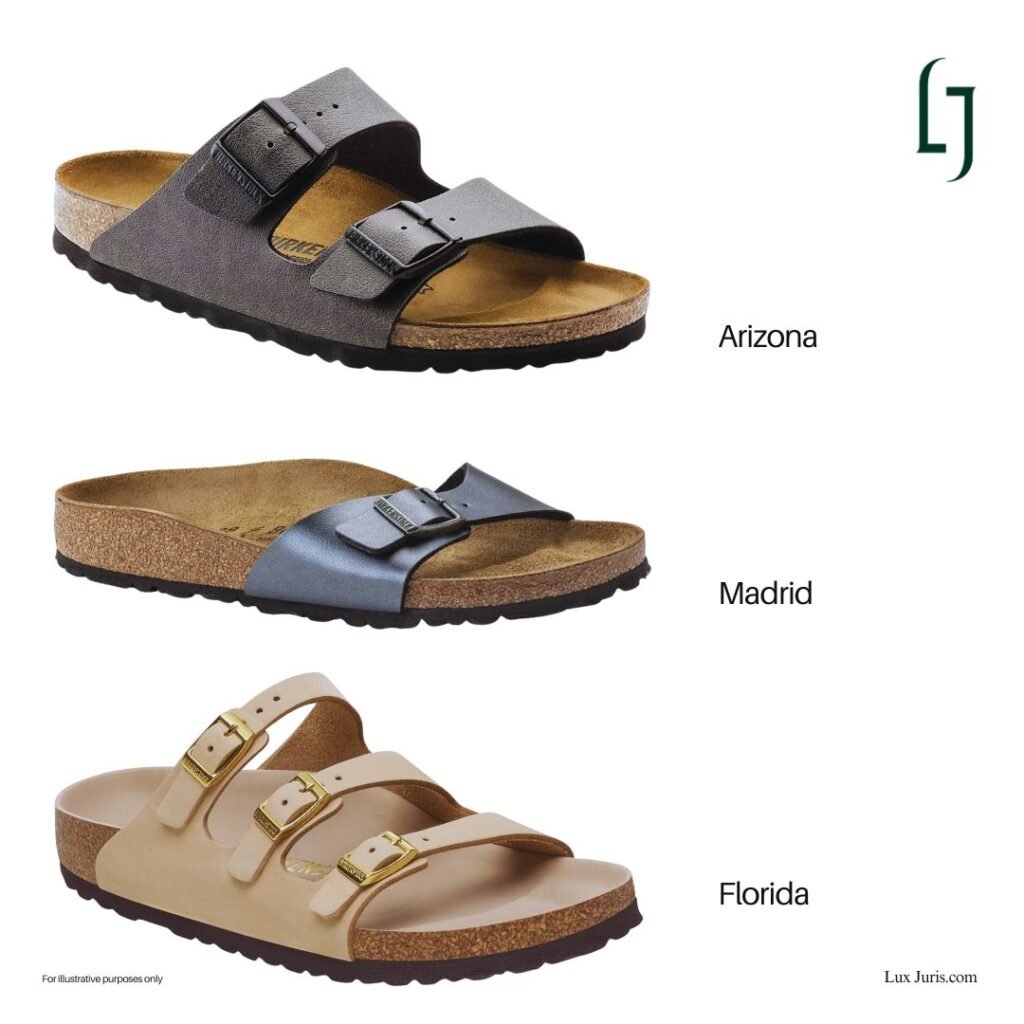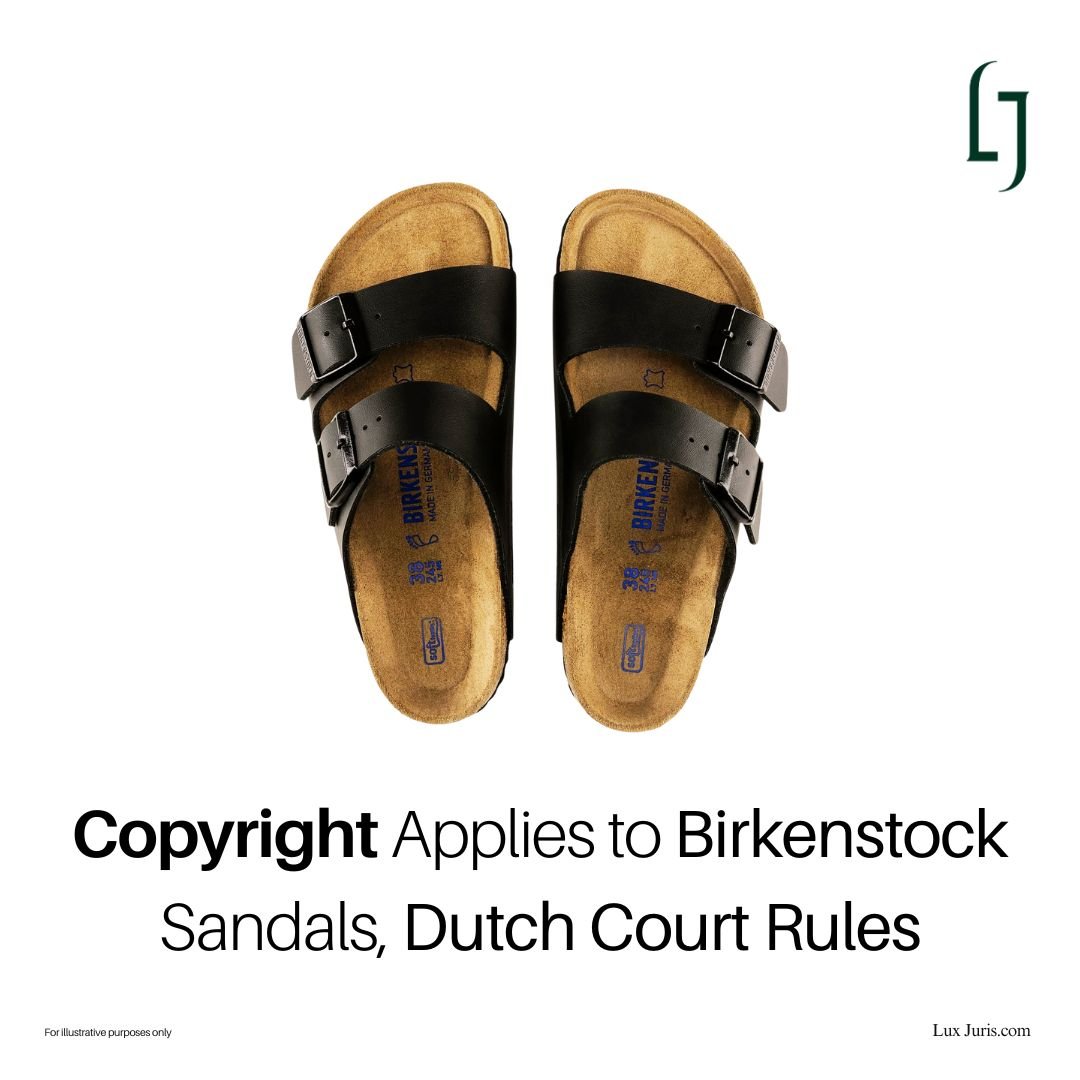The District Court of Midden-Nederland has issued a first instance ruling in favour of BIRKENSTOCK, granting copyright protection for the brand’s iconic Arizona, Madrid, and Florida sandals. While the decision may still be appealed, it represents a notable divergence from the stance of the German Federal Court of Justice (BGH) and highlights the nuanced, jurisdiction specific nature of design protection across the European Union.
Dutch Court Upholds Copyright for Sandals
The Utrecht court ordered that the sale and offering of unauthorised copies of the three sandal models must cease immediately. Scapino, the retailer in question, faces penalties of up to € 100,000 for non-compliance and is required to disclose sales data from August 2024, in addition to paying over € 50,000 in legal costs. Although claims concerning BIRKENSTOCK’s Boston and Gizeh models were rejected, the company indicated its intention to pursue those designs in appeal proceedings.
In reaching its decision, the court explicitly considered the BGH ruling of February 2025, which denied copyright protection for BIRKENSTOCK sandals. The Dutch court, however, concluded that the combination of design elements in the Arizona, Madrid, and Florida models constitutes an original work, sufficient to satisfy the threshold for copyright protection in the Netherlands.

Germany’s Restrictive Approach
The BGH represents a more conservative view, emphasising that functional products with aesthetic features cannot automatically qualify for copyright. According to the German court, BIRKENSTOCK’s sandals did not demonstrate the level of originality required to protect the designs. This approach prioritises predictability and freedom of market competition over expansive copyright claims.
EU Context and What It Means
The Dutch ruling aligns with other European jurisdictions that have recognised copyright in applied art and fashion. French courts, for example, have upheld copyright for ballerina shoes, sandals, and handbags, while Italian courts have extended protection to products such as Moon Boots. These cases illustrate a broader continental tendency to safeguard distinctive design elements, even in functional products.
The European Court of Justice (ECJ) is expected to provide further clarity in the forthcoming Mio/konektra case, scheduled for December 4, 2025. The ruling will likely establish an EU wide standard for originality in product design, potentially harmonising the divergent approaches currently seen across member states.
What Brands Should Take From This
The Dutch court confirms BIRKENSTOCK’s approach to asserting copyright across Europe, demonstrating that its iconic designs can be protected even where neighbouring courts take a narrower view. The divergence with Germany reflects the fragmented reality of copyright protection in the EU and shows why long term, multi-jurisdiction enforcement remains essential. For BIRKENSTOCK, this means continued monitoring, consistent action against copies, and sustained litigation to secure recognition of its designs across key markets.
Conclusion
BIRKENSTOCK’s Dutch win shows that copyright protection for footwear remains possible where a design meets the threshold of originality, even when function and aesthetics are closely linked. The contrast between the Dutch ruling and the German position shows that national courts still apply different standards when assessing originality in product design. Until the ECJ gives direction, brand owners will choose between building protection country by country or continuing to litigate until a coherent European approach eventually takes shape.
Source:
